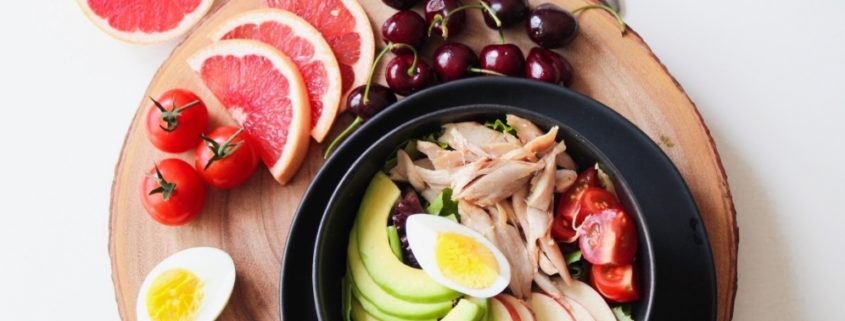The Weight We Are
One of the most common problems that I need to address with my patients is that of weight gain. Sometimes (rarely) people are too thin; more often the kind of weight gain we need to address is the slow and steady weight that sneaks up on us as we age. Contrary to what some well-meaning friends (frenemies?) may think, a man or woman who is overweight doesn’t need it pointed out to them. They have felt the pounds creep on and haven’t been able to sustain weight loss, often for very good reasons. After months or years, that new body size becomes just the way (or the weight) we are.
I hope we’re past the point of body shaming people for their weight. Bodies come in all shapes and sizes, and the best place to start any program of change is to make peace with where you are. Your weight gain may have begun with a stressful job or life change, a new baby, a medication that slowed your metabolism, or another biological reason. However you gained weight, the emphasis needs to be on a new commitment to health, not fitting some external standard of beauty.
As a physician, though, I see the corresponding gain in weight with a decline in health. Too often, weight gain is accompanied by high blood pressure, rising blood sugar levels or Type II Diabetes, pain in back, knees and hips from too much pressure on joints, and the risk of heart disease from high cholesterol or triglycerides. So it’s my job to gently suggest that this is a good time to stop the downhill slide toward ill health, and lose some weight.
Great. We’ve looked at the scale, assessed a Body Mass Index (BMI), and decided a few (or many) pounds have got to go. What next?
Before we get to the HOW, we need to determine the WHY. Some discussion can uncover if what you’re experiencing is a lifestyle problem: too sedentary, too many sweets, drinking calories—whether wine or soda, and a love affair with the bread basket. If you’re working out, trying to eat right, and even prioritizing sleep (skipping sleep is often a contributor to weight gain), then we need to look at whether there’s a metabolic or hormonal issue.
Standard blood tests can tell me a lot about what’s going on inside your body: whether your thyroid is operating at full throttle, how your adrenals are reacting to stress, and whether your cortisol levels are rising and falling as they should throughout the day. If weight gain is a medical issue, we address that first. Getting the body back into balance is key to finding your way back to a proper weight for your gender, age and height.
Then perhaps its time to make some changes in the way you eat. There are many diets and diet books available to help, and one way to success is finding the method of weight loss that you can stick with. The Ketogenic or Paleo Diet has gotten lots of attention lately, and that can work. So can a Mediterranean approach to eating. Apps like Noom are available to help you track food choices. And I often help my patients jump start their weight loss with a body cleanse product that decreases toxins in the system and helps stop cravings for sugar.
Here’s the bottom line: if your pants are too tight, you’ve gone up a shoe size, and you’re huffing and puffing when you walk (or crawl) up stairs, then you already know you need to make some changes. After a medical check up and blood work, approach your new lifestyle with a positive attitude and a decision to be kind to yourself. There’s no Fairy Godmother who’s coming in a puff of smoke to cook you healthy, delicious meals. You’re going to have to go to the grocery store, buy lots of fruits, vegetables, and protein, and learn how to combine those items into breakfast, lunch, and dinner.
Out of all the diets out there, my favorite is the Grandma Diet. The Grandma Diet asks the question: first, was this food around when my grandma was young, before things were processed to death and filled with preservatives and chemicals? And second, would a loving Grandma feed that to anyone?
Be your own Grandma. Put on an apron, dust some flour on your cheeks, and feed yourself some homemade meals (and if it doesn’t include vegetables, it isn’t a meal.) If you want dessert, eat a piece of fruit. Have a slice of cake once a week, if you’ve made it from scratch. (That’s a piece of advice from the author Michael Pollan, who says nothing is off limits, but it needs to be made from scratch. You want potato chips? Start with potatoes.)
Like most things in life, weight gain and weight loss are connected not only to how we live, but why we’re making the choices we are. Let’s make our grandmas proud. Make a balanced meal, eat it sitting down at the table (tablecloths are optional), and do the dishes when you’re finished. Let’s make healthy eating and physical activity part of the pleasure we take in doing the right things. And let’s plan to be healthy long enough to be a good grandma or grandpa to our own grandchildren.
Now wipe your mouth. Don’t talk with your mouth full. Pull up your britches. And shut that door. Were you born in a barn?




Weight has been battle my whole life. Sad but true. When I “diet” i gain. I hate the scale. Now that I am “mature” it seems impossible. I just want to be happy in my body and I am not. This is so personal but I know I am not alone.